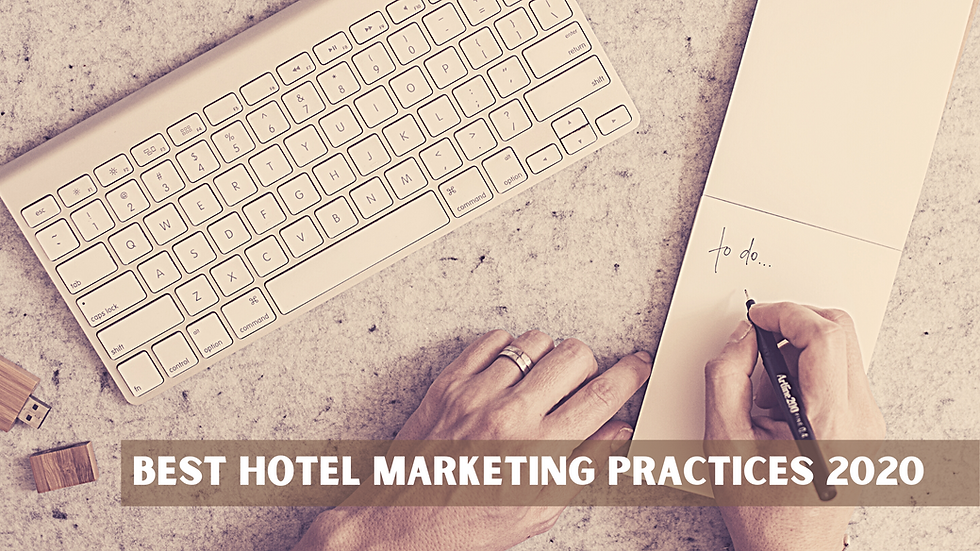What are important requirements for sales and marketing in hotel industry
- eddie
- Jan 5, 2021
- 2 min read
A Sales and marketing manager in the hotel industry is responsible for maximizing a hotel’s revenues by developing programs to increase occupancy and make profitable use of its accommodation, meeting and leisure facilities.
THE BASICS
Hospitality sales are different from consumer goods sales because marketers must sell tangible as well as intangible products. In many cases this means that they are marketing services rather than goods, and success hinges on creating the right feeling in the consumer. For example, a resort will want to cultivate a relaxing, fun atmosphere that is recognizable to customers and inspires those same feelings in the consumer.
Because the hospitality industry is mostly made up of tourism and other experiential services, a consistent brand identity is also very important. Marketers want to ensure that brand recognition exists so that customers will use their services again and again. Repeat customers bring in a sizeable portion of revenue, so marketing strategy must be split between maintaining relationships with past customers while seeking out new ones.
STRATEGIES FOR SUCCESS
Companies in the hospitality industry use various methods to develop and maintain an effective marketing plan. The following are some of the general strategies that marketers use for brand success.
RESEARCH
Customers choose hotels and other hospitality services for a variety of reasons. From location to facilities and perks, companies have to be sure that they’re providing what buyers are looking for. The role of marketers is to identify what factors make customers choose a particular hospitality service, and this requires extensive research. By speaking to current and former guests, monitoring customer reviews on websites, reviewing industry data and more, marketing professionals learn what makes a hospitality service stand out, as well as how it can be improved.
AWARENESS
If potential customers don’t know about a service, they can’t purchase it. That’s where brand awareness comes in. Marketers make sure information on hotels, resorts and restaurants is easy to find and up-to-date. They can do this by buying ad space on relevant travel sites, creating an engaging website and collaborating with other, noncompeting hospitality services in the same market.

PROMOTION
Another smart strategy for attracting customers is to run promotions during certain times of the year, usually when business is slower. Introducing incentives and offering incentives are just some of the ways that marketing professionals achieve this. Have you purchased a Groupon for a spa weekend? That’s promotion at work.
RELATIONSHIPS
To ensure high levels of repeat business, good customer relationships are vital. Not only do repeat customers usually promote a service through word-of-mouth and social media, but they also create a stable revenue base. One way to build relationships is through customer loyalty programs, which reward customers who regularly use a particular hospitality service.
sources from www.online.csp





Comentários